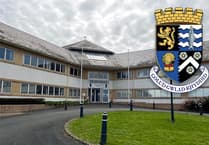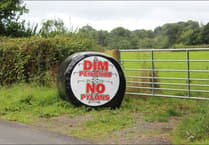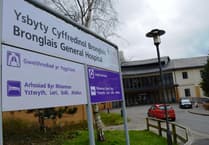THE HIGHLY damaging reverberations from Kwasi Kwarteng’s blockheaded ‘mini’ budget continue on their unmerry way.
The chancellor’s capitulation over the 45p tax rate did indeed pitch the entire Tory growth project into chaos, and gravely undermined any claim to competence and cohesion.
But with Liz Truss since then making no secret of her unwavering preference for slashing the top tax number, she sticks with her disreputable ambition to shovel many thousands more into the pockets of the richest taxpayers, a surefire way to inflict further dismay on the legions of overworked and under-paid people in, as a prime example, Ceredigion, Powys and Gwynedd. They, meanwhile, continue to shake their heads in disbelief over the Trussteng partnership’s casual lobbing of yet another economic grenade into lives already reeling under the pressures of leaping inflation and price rises.
For them, the need is for urgent practical help, to include restoration of the 10p starting rate of income tax, which was scrapped under Gordon Brown’s final budget in 2007, an incredibly thoughtless measure which continues to be a significant and clearly unfair burden for low-paid people. With its power to vary the rates of income tax paid by taxpayers in Wales, the Cardiff government could come to the rescue by either restoring the 10 per cent band, or raising the personal allowance, or both. Something else urgently needed is an end to the flagrantly unfair higher charges levied on users - virtually always poor people - of prepayment power-meters.
On mortgages, the question is whether the damage done can be reversed, or whether the increase in the cost of borrowing will almost inevitably mean higher rates for buyers.
The cauldron of discontent bubbling away, there may nevertheless for some people be a moment, perhaps late at night, to ponder an intriguing question: has the ghastly truth now dawned on that sizeable chunk of the rural Wales electorate which in the 2019 general election fairly fell on its knees in admiration of the Conservatives?
Have the Ceredigion voters who put the Tories in second place with 22 per cent of the vote, Gwynedd’s third place 24 per cent and Powys’s 52 per cent bowled-over-by-Boris winners now seen the light? Namely that the Tories’ growth ambition centres on boosting incentives for the rich, and quite openly rejects redistribution of wealth to the poorest. That, contrary to the Truss mantra, wealth never has ‘trickled down’ where inequality reigns and, when growth occurs, you can rely on it shimmying upwards.
The reality is that the UK government, within whose flounderings Wales remains in too many ways trapped, is marooned on a mudbank named Brexit, headed by a prime minister without electoral legitimacy. Adding injury to insult, we’re assailed by economic vandalism. Only a general election will get us out of this hopeless cul-de-sac.
Rural households in Wales are about to be screwed even more...
PROSPECTS for thousands of electricity-only households in rural Wales getting fairly-priced power following short-term aid under the UK government’s energy bills support scheme have taken a dive following the latest expression of Truss administration incompetence.
Ministers are reportedly pushing ahead with plans to cap prices at renewable energy generators, after talks failed to persuade them to voluntarily fix contracts below the current wholesale rates.
The move, first reported by the Financial Times, will amount to a windfall tax on renewable energy, which companies involved warn could deter investment in renewables, thus delaying expansion in the supply of affordable electricity, at a serious cost to struggling households in mid and north Wales.
The sane way forward must be to reform the wholesale energy market to ensure that volatile gas prices no longer set the price of electricity produced by much cheaper renewables. This would have the effect of lopping hundreds of pounds off the bills of rural Wales households not connected to mains gas. But an initiative to bring about such price decoupling, backed by Kwasi Kwarteng when he was business and energy secretary, has stalled.





Comments
This article has no comments yet. Be the first to leave a comment.